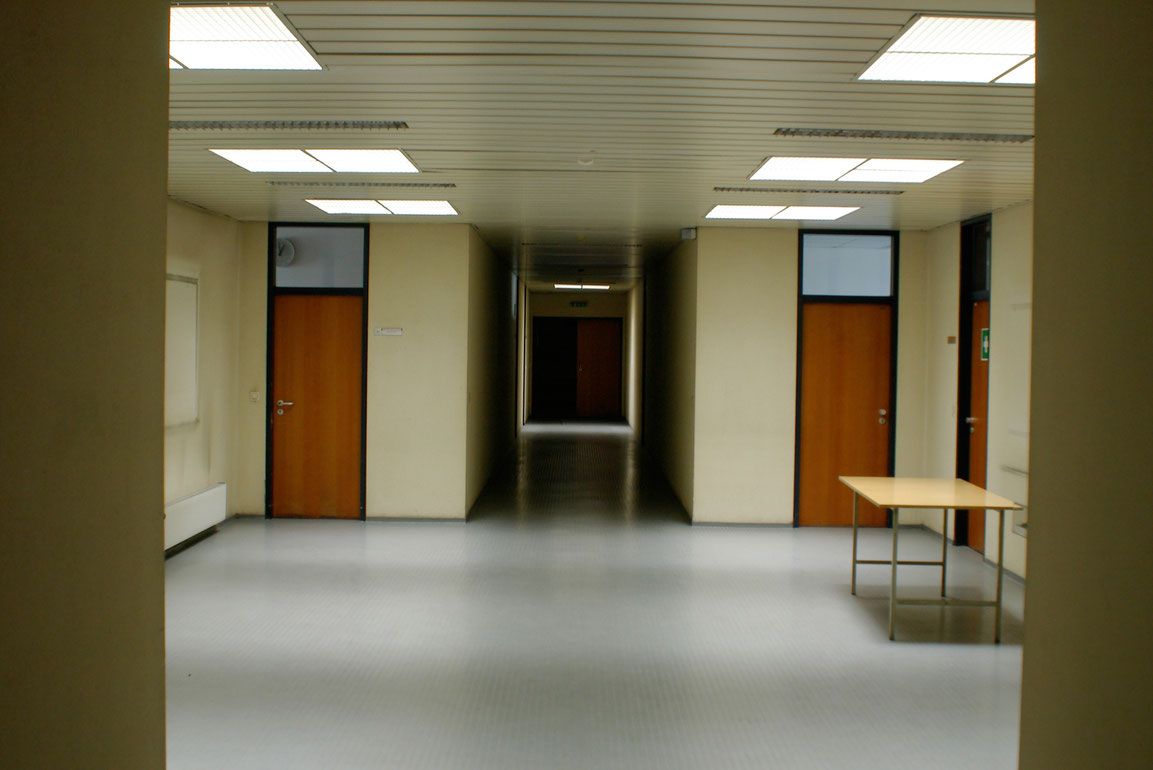We are the Mutants
A black-and-white photo from the archives, accompanied by the sound of nostalgic music: Austrian postal workers sort out letters and packages on the conveyor belt. These standardized Fordist work processes have now been automated, like in so many other industries: nowadays, large machines rapidly sort the mail.
Konrad Wakolbinger’s short documentary film, Wir sind die Mutanten—the title is from an interview statement by Anton Wais, the post office’s former chairman of the board—pursues the question of what happens to the human work force made redundant in the state enterprise’s privatization. Having once been elevated to the honorable status of public servant, they cannot simply be rationalized away. Shunted into the euphemistically named internal facility, the “Karriere- & Entwicklungscenter” (Career and Development Center, abbreviated as: KEC), they lead a deplorable existence, which consists primarily of wasting time.
Wir sind die Mutanten attempts to allegorize rather than illustrate this special path. The story of the company’s development related via objective voice-overs is supported by statements from the affected workers. At the visual level, however, Wakolbinger does not fall back on interviews. Instead, he assembles scenes of a ghostly, abandoned work place from which all human activity has vanished: Deserted computer mice, loose cables, decommissioned office spaces. A lone postman stands as representative of the downsizing of a once proud occupational group: in the beginning he puts on his uniform, when he takes it off again at the end of the film, one sees that he has a prosthetic leg. Wir sind die Mutanten deals with what is gladly overlooked when an established system is succeeded by a more efficient one: collateral damages.
(Dominik Kamalzadeh)
Wir sind die Mutanten
2013
Austria
15 min


